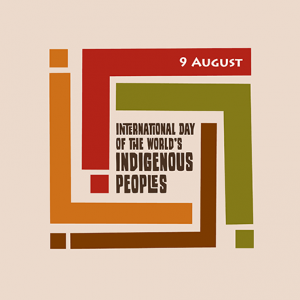Language is focus of this year’s event

UN Secretary General, António Guterres, released the following statement today to mark United Nation’s Day of the World’s Indigenous Peoples: “This year marks the International Year of Indigenous Languages, declared by the UN General Assembly to draw attention to the urgent need to preserve, revitalize and promote indigenous languages.
“Languages are how we communicate, and they are inextricably linked to our cultures, histories and identity. Almost half of the world’s estimated 6,700 languages—of which most are indigenous—are in danger of disappearing. With every language that disappears, the world loses a wealth of traditional knowledge.
“There are an estimated 370 million indigenous people in the world. A significant proportion still lack basic rights, with systematic discrimination and exclusion continuing to threaten ways of life, cultures and identities. This is contrary to the intent of the United Nations Declaration on the Rights of Indigenous Peoples and the 2030 Agenda for Sustainable Development, with its promise to leave no one behind.
“I count on Member States to engage and support indigenous peoples in determining their own development through policies that are inclusive, equitable and accessible. The United Nations stands ready to support all initiatives aimed at realizing the rights and aspirations of indigenous peoples.

“Since 1982, the International Day of the World’s Indigenous Peoples has provided us with a unique opportunity to raise global awareness of the contributions made by indigenous peoples towards building peace and developing sustainable and resilient societies.
Audrey Azoulay, Director-General of UNESCO, also released a statement, which focused on the threats to indigenous cultures and languages, “Indigenous cultures possess a wealth of knowledge crucial for the achievement of the Sustainable Development Goals, and particularly for the preservation of the environment and the world’s biodiversity. UNESCO has been working to preserve the intangible heritage of traditional skills and know-how, as well as to raise awareness of their importance, through programs such as Local and Indigenous Knowledge Systems (LINKS) which supports governments to create crucial interfaces between scientific and indigenous communities…
“The disappearance of indigenous languages is a major threat to indigenous communities and their unique heritage, as well as to our global diversity and our very potential for creativity and innovation. Through the International Year of Indigenous Languages (IYIL2019), UNESCO strives to focus attention on these critical issues, and to take steps towards global collective action to address them.
“UNESCO, as an institution in a unique multilateral and international position, is mobilizing a large network of individual and institutional partners such as the Latin American and the Caribbean countries for the Online Indigenous Film Festival that took place in June, to take urgent measures to support, promote and provide access to indigenous languages, as well as to share good practices.
“In March of this year, UNESCO worked to raise awareness of newly established indigenous community media and radio networks worldwide, and for the development of applications for indigenous languages, during a hackathon to develop innovative language technology solutions in the Asia-Pacific region.
“Finally, we are very excited to announce that thanks to a vast collaboration, the next edition of the El Cuento de las 1000 Palabras, a Peruvian competition on story-telling, will not only be held in Spanish, but will also be opened to the 48 indigenous languages of the country.”
“At UNESCO and the United Nations we are convinced, now more than ever, that the achievement of the Sustainable Development Goals requires that no one is left behind. Indigenous peoples, their languages, values, knowledge systems and “know-how” must all play a role in the global endeavor to find just and sustainable paths forward for the living world and for humanity as a whole.”





